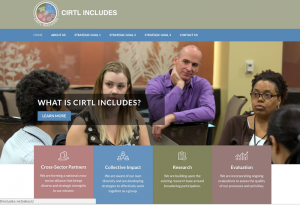2018 – 2023 NSF INCLUDES Aspire Alliance
From 2018 – 2023 UCLA led the Southern California Regional Collaborative network as one of several regional collaboratives across the nation.
The Aspire Alliance’s overarching strategy is to align and reinforce both the professional development and recruitment, hiring, and retention practices of/for STEM faculty. Aspire is collaboratively led by six institutions as part of an NSF cooperative agreement. Aspire has 3 change teams (Institutional Change, Regional Change, and National Change); 3 support teams (Backbone, Research, and Evaluation); and 4 goals: 1) Deepen the preparation of all future, early-career and current STEM faculty to be inclusive and effective in their undergraduate teaching, research mentoring and advising; 2) Diversify the national faculty through effective recruitment, hiring, and retention of underrepresented group (URG) STEM faculty via institutional transformation in practices, policies, and resources; 3) Foster postsecondary organizational cultures that recognize and value inclusivity and diversity broadly, and in the context of STEM faculty work specifically; and 4): Collective Impact and Collaborative Infrastructure.
The Regional Change Team supports partnerships between 2- and 4-year institutions to build inclusive pathways for diverse graduate students to explore and secure positions as STEM faculty at 2-year institutions. They have formed 9 regional collaboratives which have engaged over 200 graduate students from 35, 4-year institutions in mentored teaching practicums at 22, 2-year institutions.
Learn more about the outcomes for our Southern California Regional Collaborative on our Project Outcomes Page.
September 2018: NSF Announces INCLUDES Awards
UCLA Joins APLU and CIRTL in Leading $10 Million NSF Grant to Cultivate a More Diverse & Inclusive STEM Faculty Nationwide
Project Seeks to Attract & Enable More Underrepresented Students to Succeed in STEM Fields
See full press release from NSF here
The National Science Foundation (NSF) announced on September 5, 2018 the award of a five-year, $10 million NSF INCLUDES Alliance grant co-led by the Association of Public and Land-grant Universities (APLU) and the Center for the Integration of Research, Teaching, and Learning (CIRTL), based at the University of Wisconsin – Madison. Joining the lead institutions in the new Alliance are Iowa State University; the University of California, Los Angeles; the University of Texas at El Paso; and the University of Georgia. These universities are partnering with dozens of other universities, two-year colleges and organizations across the country to scale practices aimed at diversifying the nation’s STEM college educators and grounding them in inclusive teaching practices. Referred to as the National Alliance for Inclusive and Diverse STEM Faculty (NAIDSF), this bold and ambitious collaboration will pursue three mutually reinforcing strategic goals all focused on faculty:
- Deepen the preparation of all future, early-career and current STEM faculty to be inclusive and effective in their undergraduate teaching, research mentoring and advising;
- Diversify the national faculty through effective recruitment, hiring, and retention of URG STEM faculty via institutional transformation in practices, policies, and resources;
- Foster postsecondary institutional cultures that recognize and value inclusivity and diversity broadly, and in the context of STEM faculty work specifically.
The ultimate aim is to attract into STEM college programs more students from groups historically underrepresented in higher education including women, members of minority racial and ethnic groups, persons with disabilities, and those from low socioeconomic backgrounds.
NAIDSF is among the first five NSF INCLUDES Alliance awards to be made by the NSF.
This award provides funding for a regional coordinator for the Southern California Regional Collaborative as well as additional funds for internship opportunities and travel to regional and national events.
2016 – 2018 CIRTL INCLUDES Design & Development Launch Pilot
CIRTL INCLUDES Design and Development Launch Pilot (2016-2018)
The pilot project (Award # 1649092 ) was led by the Center for the Integration of Research, Teaching, and Learning (CIRTL) and our primary goal was to work within our region to explore a collaborative impact model across our regional 2-year community colleges and 4-year institutions to better prepare future faculty for careers in community colleges, where we know many students from underrepresented groups have their first STEM experiences.
This work would lay the foundation for partnership with APLU (who was awarded a separate NSF INCLUDES Design & Development Launch Pilot) in order to develop the Alliance proposal
The Community College Pathways Survey
The Career Pathways of Community College STEM Faculty: Results of the CIRTL INCLUDES Pilot Study | (PDF)
The preparation of faculty in effective teaching practices is a major means of improving the quality of undergraduate STEM education. Most studies and initiatives concentrate on four-year institutions, despite the transformative role community colleges (CCs) can play. We conducted a study of more than 3,000 CC STEM faculty members from 11 institutions as part of the CIRTL INCLUDES pilot to learn about their educational and career pathways, where they earned their degrees and worked prior to beginning their first community college positions, participation in teaching development, and interest in two-year faculty careers.



